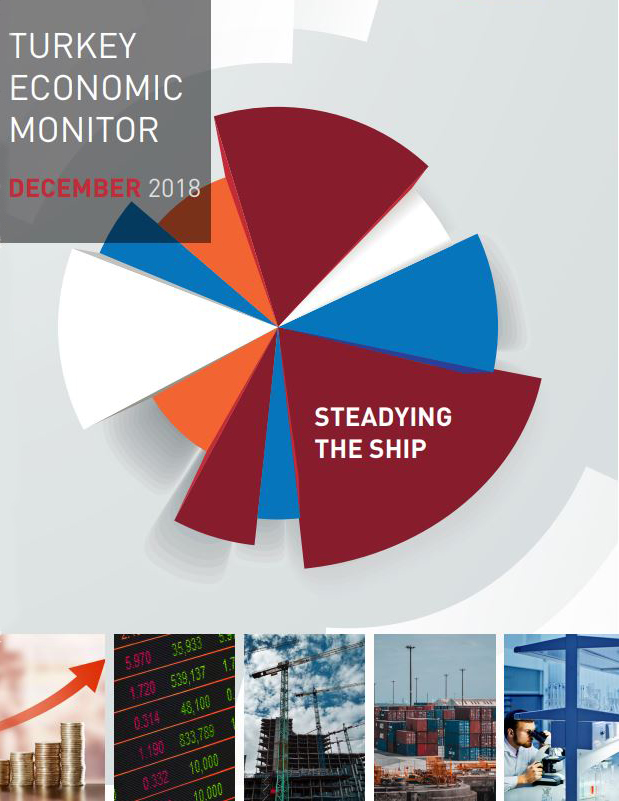Taking Stock
Over the past six months, Emerging Markets and Developing Economies (EMDEs) have faced headwinds from declining capital flows, slowing global trade, and commodity price volatility. In Turkey, these factors have combined with macro imbalances, perceived policy weaknesses, and international tensions to trigger a Lira sell-off and capital outflows.
Market volatility has subsided since August and the Lira has rebounded and external imbalances have narrowed. But Turkey’s external financial situation remains fragile and market perceptions of risks are high. Market volatility has also affected the real sector through high inflation, falling demand, and a big supply side correction.
Supply side adjustments, combined with elevated corporate debt - including FX exposure - has raised corporate solvency and liquidity concerns. Impacts vary across sectors; non-tradable sectors are the worst affected, while outward-oriented manufacturing sectors remain buoyant. Rising corporate stress has exacerbated banking sector vulnerabilities.
Timely policy actions - including liquidity management, a tightening of monetary policy, and addressing corporate debt vulnerabilities - have helped prevent a sharper correction.

